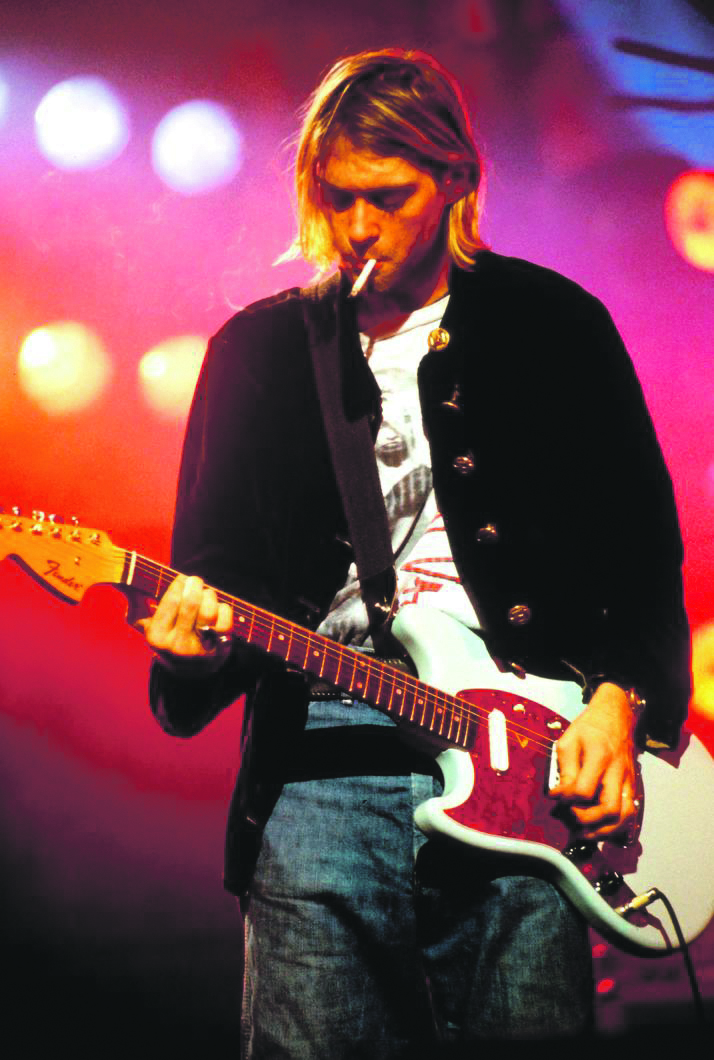There’s no Such Thing as the Last Great Rockstar
 By Resonate | January 3, 2023
By Resonate | January 3, 2023
Words by Millie Cotteral
Rockstars are among the most idolised people in the cultural sphere. They possess the holy trinity of attitude, swagger and sex appeal. There’s a real iconography to what they do, so it’s no wonder why many bedroom walls are draped in posters eulogising them. You have rockstars that are innovative in breaking the mould like David Bowie, and you have those who simply have the raw attitude of Liam Gallagher. However, when the word “rockstar” is mentioned, the pub round-table discussion of whom might be the last great rockstar? is always pertinent.
The conversation surrounding great rockstars is fundamentally cyclical. The same names are always cropping up; Kurt Cobain, Liam Gallagher and Dave Grohl are some that are often at the forefront. They all rose to fame in the 90s and have been dubbed by many loyal fans to be amongst the last great rockstars. A regular theme in research is the fact that they grew up surrounded by guitars in what is perceived to be the golden era of guitar-based music.
Guitars were the primary mode of instrumentation in this era and a symbol of cool for any discerning musician. The term ‘sex, drugs and rock & roll’, was frequently rolled out and is a term deemed more acceptable in a pre-cancel-culture world. Moving beyond this cliche, being a rockstar in 2022 means you don’t need to bathe (or all too often drown) in excess, a notion the public has applied to the term over the years. Rockstars still exist in today’s world, and they are seemingly less required to partake in the tropes of that lifestyle or have a bad attitude to find success. Sam Fender leads the way as an example of a modern-day rockstar. He’s got talent, looks, and an on-stage presence but also comes across as an affable everyman.

There are many modern-day rock and indie musicians that prove that rockstars still exist but have less need to strap a Les Paul around your neck to prove that fact. The term may have started to describe famous rock musicians, but it’s very much progressed to expand its horizons. Find me someone who disagrees that Madonna embodies all the traits of a rockstar – boundary-breaking, attitudinal, subversive and excessive.
There are plenty of other non-rock musicians that are also in the Rock & Roll Hall of Fame. From Pop to Jazz musicians and, nowadays, increasingly rappers, the boundary as to what constitutes a rockstar goes beyond the traits that originally defined it. We’ve always had rockstars in other genres, we just need to acknowledge them more. Bjork’s experimental nature and attitude make her more than fit for the title. If you think The Prodigy aren’t rockstars take one look at the late Keith Flint on stage and you’ll be eating your words.
The last great rockstar term is reductive. We are witnessing great rock stars in our current musical landscape. Artists such as Beabadoobee, Fontaines D.C. and Sports Team are very much keeping rockstars alive in guitar music. Stormzy proves that rappers can also be just as ‘Rock n Roll’; just look at his iconic headline set at Glastonbury. There’s a strong argument that rappers are the new rockstars as many of them mirror the extravagance of rockers in previous eras. There are even many DJs that embody the rockstar characteristics.
The ‘last great’ rockstar is defunct. We will continue to see rockstars appear as new artists who have rockstar-style qualities. Recognising the term is not just defined by guitar music is essential to it progressing and remaining relevant.
To find more Current, click here.